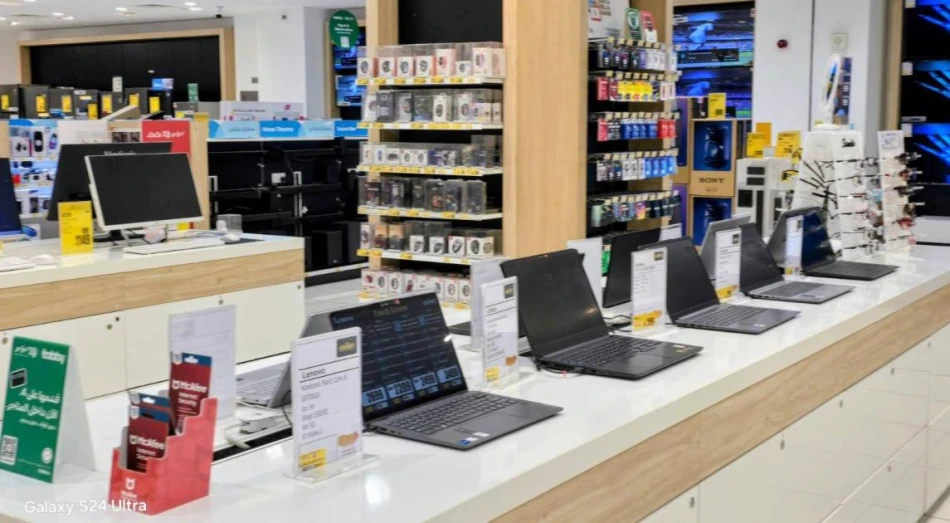
UAE's Portable Computer Market Sees 3% Growth in First Half, Promising Opportunities Ahead
UAE Laptop Market Shows Resilience Amid Global Tech Uncertainty
The UAE's laptop market demonstrated modest but significant growth of 3% in the first half of 2025, according to preliminary IDC data, signaling sustained demand for personal computing despite global market volatility. This growth story reveals a tale of two markets: while enterprise and government sectors drive recovery, consumer preferences are shifting toward premium products and AI-enabled devices, reshaping the competitive landscape.
Mixed Signals Point to Market Maturation
The 3% growth figure from IDC contrasts sharply with GFK's consumer-focused data showing a 1.5% decline through May 2025. This divergence illustrates a maturing market where institutional buyers are recovering from pandemic-era purchasing cycles, while consumers have become increasingly selective after the surge in laptop sales during COVID-19 lockdowns.
Michele Montechiò, General Manager of Acer Middle East, emphasized that despite appearing moderate, this growth indicates "continued demand for personal computing in the region, especially amid global market fluctuations." The data suggests the UAE market is stabilizing at higher baseline levels established during the pandemic, rather than experiencing the dramatic corrections seen in other global markets.
Apple Leads Premium Shift
Mac computers achieved the highest year-over-year growth among all operating systems in the first half of 2025, according to GFK data. This surge reflects a broader consumer trend toward premium, integrated ecosystems—a pattern observed globally as buyers prioritize long-term value over initial cost savings.
The Mac performance mirrors similar trends in Singapore and Hong Kong, where affluent consumers increasingly view laptops as long-term investments rather than commodity purchases. This shift benefits manufacturers offering premium products but pressures those competing primarily on price.
Windows Market Adapts with AI Integration
While Mac gains market share, Windows-based systems maintain strength through diversity in specifications and pricing. Acer's Windows portfolio now includes Copilot+ PC devices with integrated AI capabilities, alongside new gaming laptops featuring NVIDIA's RTX 5000 Series graphics cards. This strategy of offering AI-enhanced devices across price points positions Windows manufacturers to capture both enterprise upgrades and consumer interest in emerging technologies.
Price Competition Intensifies
Average laptop selling prices dropped by approximately $10 per unit in the first half of 2025 compared to 2024. While seemingly minor, this decline signals increased competition in budget and mid-range segments as manufacturers introduce more economical options.
This pricing pressure particularly benefits students, families, and budget-conscious professionals—demographics crucial for long-term market growth. Acer's response includes the Aspire 14 AI, launched in June 2025 with three variants at different price points, demonstrating how manufacturers are democratizing advanced technologies.
AI Laptops: Early Adoption Phase
AI-enabled laptops entered the UAE market with significant capabilities but remain in early adoption stages. Consumer and business curiosity is growing, yet awareness of practical benefits remains limited—a challenge facing AI laptop adoption globally.
The UAE's position mirrors early smartphone adoption patterns, where technical capabilities preceded widespread understanding of practical applications. As major brands introduce models with generative AI features, productivity tools, and adaptive performance systems, market education becomes crucial for accelerating adoption.
Enterprise Adoption May Lead Consumer Market
The disparity between IDC's overall growth figures and GFK's consumer decline suggests enterprises and government entities are driving AI laptop adoption. This pattern typically precedes broader consumer acceptance, as workplace familiarity with AI features creates demand for similar capabilities in personal devices.
Acer's AI-enabled portfolio in the UAE market includes the Aspire 14 AI, Predator Helios 18 AI, and multiple Predator Helios Neo variants, indicating manufacturers are betting on accelerated adoption in coming months.
Regional Implications for Tech Investment
The UAE's laptop market performance reflects the country's broader technology strategy and economic diversification efforts. Sustained demand for computing devices supports the nation's digital transformation initiatives and positions it favorably compared to markets experiencing sharper corrections.
For global manufacturers, the UAE represents a stable market for testing premium products and AI integration strategies before broader Middle Eastern rollouts. The combination of affluent consumers, government digitization projects, and enterprise modernization creates a unique environment for technology adoption that often precedes trends in larger regional markets.
Most Viewed News

 Omar Rahman
Omar Rahman






